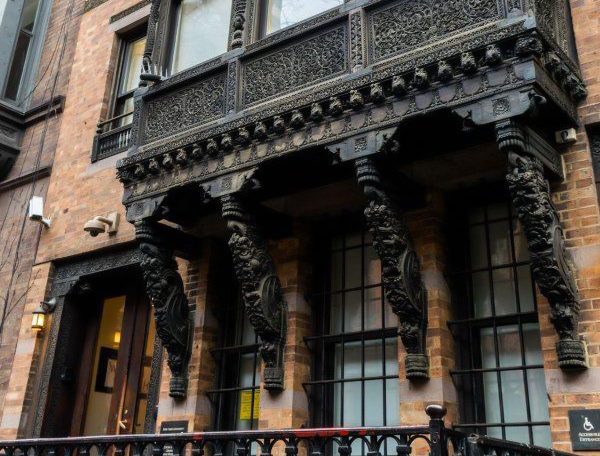Pesach, or Passover, is the major Jewish spring festival which commemorates the liberation of the Israelites from Egyptian slavery, usually lasting seven or eight days. However, this year’s Passover is unlike any other. At a time when any celebration feels strange due to the current health crisis, it’s important now more than ever to come together and examine the important lessons of Jewish history.
“Many of us have felt the full burden of this disease,” NYU Bronfman Center for Jewish Student Life Managing Director Rebekah Thornhill Tokatlilar said. “But the Jewish people have endured millennia of hardship and through it all, Jewish life has persisted.”
Typically on the first, and in some cases second, night of Passover, Jewish people participate in a “seder,” a home ritual blending religious rituals, food, song and storytelling. While these rituals usually involve multiple generations and large gatherings, this year, social distancing and quarantining have greatly changed the community aspect surrounding almost all Jewish life.
However, as Tokatlilar said, the Jewish people are persisting and adapting their traditions to the unprecedented circumstances.
“The Bronfman Center will be providing virtual seder options on Wednesday and Thursday,” Tokatlilar said. “It consists of a virtual pre-seder conversation on the lessons Passover can teach us about our reality today, and a one-of-a-kind seder experience.”
The “Let My People Go (Outside) Seder” on April 8th is a Passover pre-game and general seder that aims to center those who participate both in their faith and in gratitude. Additionally, the Bronfman Center also has traditions for those who are aiming to celebrate more than just their Jewish faith.
“On April 9th, Keshet (LGBTQ+ Jews @ NYU), the Bronfman Center, and the NYU LGBTQ Center will gather LGBTQ folks and our allies for Exodus: NYU’s annual queer seder,” Bronfman Center Rabbi Nikki DeBlosi said. “Exodus is a not-quite-traditional exploration of Yetziah (exodus/coming out) where we celebrate the story of Passover with ritual, songs, and stories.”
In addition to the celebrations put on by the Bronfman Center, Jewish students at NYU had virtual seders of their own across the country. Tisch first-year Melina Rabin moved back home to San Diego due to the pandemic, but that didn’t stop her from celebrating.
“We basically did a Zoom Seder,” Rabin said. “It was pretty nice! My dad led the seder and he included a bunch of reading that was relevant to the whole quarantine situation.”
While Rabin usually celebrates in person with her grandma, cousin, brother and sister-in-law, Zoom allowed them all to tune in like in the past years.
“It was kind of sad not being able to see everyone in person,” Rabin said. “But it was still fun and enjoyable.”
But, all across the country, there are thousands of Jewish-Americans who are not jumping on the digital wave.
“I know a lot of people are probably going to say that they did a Zoom seder, but that just didn’t feel right for my family,” high school senior Sheldon Skoboloff said. “In fact, having any kind of seder really just didn’t feel right this year, as the seder celebrates freedom, and this year we aren’t able to be entirely free, nor should we be, as we all need to be quarantining.”
Nonetheless, the Skoboloff family did not go without celebration.
“In lieu of a seder, we watched The Rugrats Passover and The Prince of Egypt while eating some matzo ball soup and charoset,” Skoboloff said. “This is entirely different than in past years due to quarantine. Usually, my family is known for hosting a huge seder and inviting Jews and non-Jews alike to partake in a really fun night. We sing, dance, act out plagues and laugh together. We couldn’t do that this year due to the virus.”
While Passover celebrations have changed dramatically for many during the quarantine, so have many other aspects of the Jewish faith as well. Namely, this crisis has affected synagogue attendance, harmful stereotypes towards the Jewish people and adherence to dietary restrictions.
“I used to attend religious services on a weekly basis and would like to again, however, there isn’t a synagogue in my hometown that I feel comfortable going to,” Skoboloff said. “Somehow whenever a disease like this gets spread, there’s always a conspiracy about how the Jews created it. It’s never a safe time to be Jewish but it feels a little more dangerous right now. So I haven’t been posting about my Passover celebrations as much as I would like to. I usually post about celebrating Jewish holidays to educate my non-Jewish followers on the matter.”
In regards to keeping kosher, the COVID-19 crisis produces a slew of challenges to those adhering to these dietary rules. Due to the rush to stockpile groceries, kosher products are hard to come by.
“It’s been extremely difficult to keep kosher for Passover and we’ve definitely had to cut some corners,” Skoboloff said. “We don’t have many products that say kosher for Passover on them in our house because we stocked up on food in March when the quarantine was announced. We didn’t want to risk other people’s safety just to get a different kosher label, so we’re eating what we know is acceptable for Passover, just without the label.”
Like with Passover itself, there are lessons to be learned from these challenging times.
“To have a disease and know that there’s nothing you can do about, because there might not be a cure or you don’t have the funds to have a health insurance plan, to have genetic diseases upon birth that may define you or how you live your life, mental diseases that affect every aspect of your being,” Skoboloff said. “Your health controls pretty much everything about you and there’s not much that you can do to change it.”
Email Hannah Shaye Young at [email protected].


























































































































































